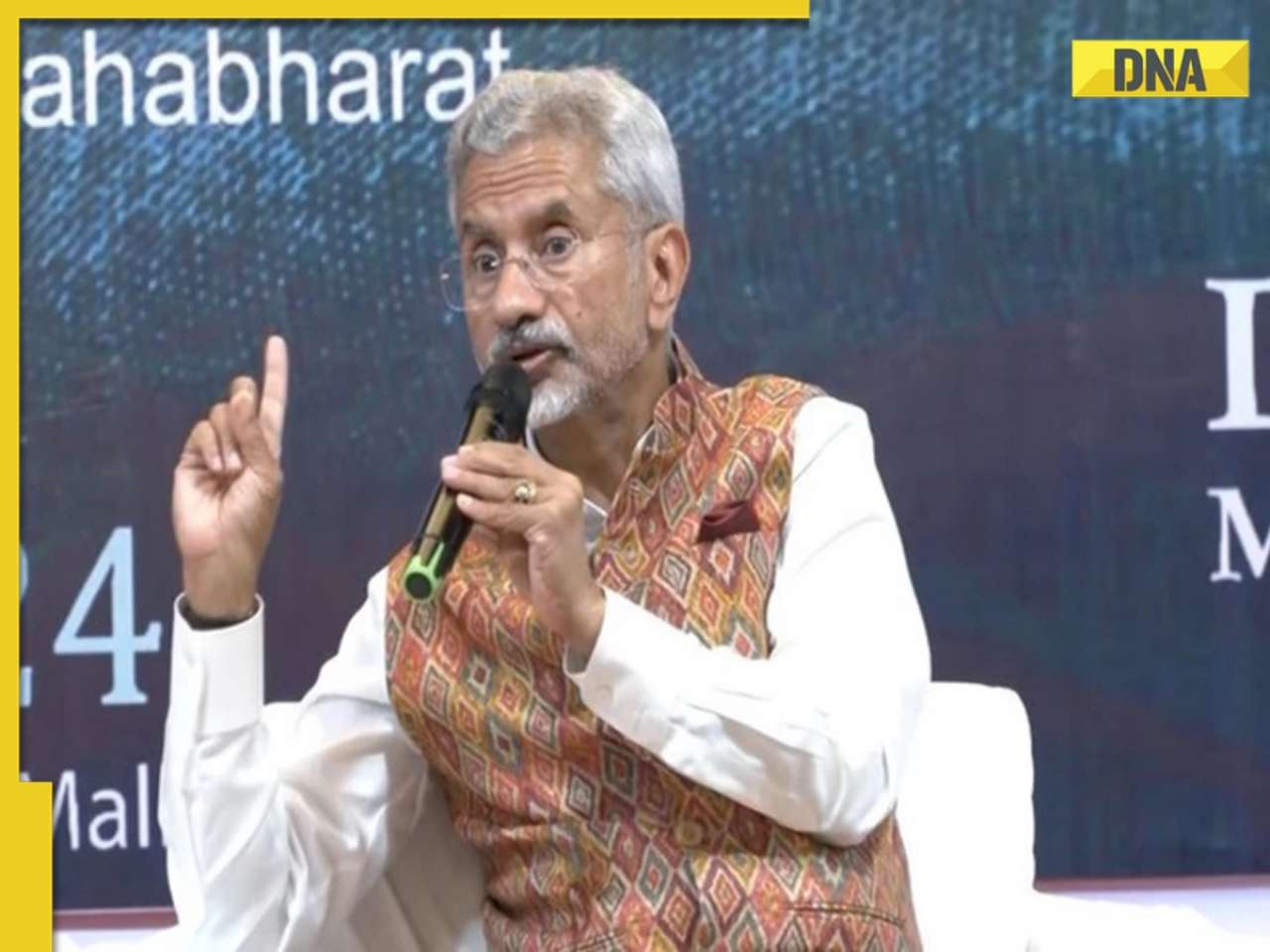Recent developments should rationally induce caution among the Pakistani Army and ISI about launching another terrorist strike on India, but it’s too early to tell if their thinking has changed.
It is appropriate, even incumbent on the nation to objectively examine our preparedness to meet the challenge of another 26/11. But should we be debating in public what our response should be in case of such attacks in future? That will be helpful to the generators of terrorism.
What we should avoid is the kind of debate we had on the ‘cold start’ doctrine on which the Pakistani Army went to town and which has since been dismissed by the Indian Army chief. (It was speculated that the Army had a ‘cold start’ doctrine, envisaging a limited, conventional attack on Pakistani targets in the event of a terrorist strike.)
India is not the only country targeted by Pakistani Jehadis. The 9/11 plot was hatched by Khalid Sheikh Mohammed, a Pakistani with the tacit approval of the Interservices Intelligence (ISI). The last remittance of $100,000 to Mohammed Atta, the lead hijacker on 9/11, was wired by Omar Sheikh, the Pakistani Jehadi who is presently under sentence of death for the murder of Daniel Pearl, the Wall Street Journal correspondent. Pakistani Jehadis also carried out an attack on the London transport system on July 7, 2005, killing 52 and wounding 700, and as prime minister Gordon Brown told prime minister Gilani of Pakistan in front of international TV cameras, in 90% of terrorist cases in Britain, the trails lead to Pakistan.
There have been subsequent unsuccessful attempts by Pakistani Jehadis on US and UK targets, the latest being the attempt to set off a bomb in New York’s Times Square by the Pakistan-born Faisal Shahzad. In an interview with CBS television, Hillary Clinton said on May 8, 2010, “We’ve made it very clear that if — heaven-forbid — an attack like this that we can trace back to Pakistan were to have been successful, there would be very severe consequences.”
Why did not the US and UK strike back at Pakistan? Because Pakistan has nuclear weapons and missiles supplied by China. The Pakistani Army has been using terrorism as state policy as a derivative of their nuclear deterrence. That has induced caution in the victim nations in handling Pakistan. However, now the warnings of both Clinton and India’s home minister Chidambaram to Pakistan, that consequences in case of future terrorist attacks will be severe, are on record.
In the two years since 26/11, there has been only one major terrorist incident again attributable to inspiration from across the border. That is the Pune bakery blast. This long period of absence of terrorist attacks on India by Jehadi organisations is attributed mostly to better counter-terrorism preparedness developed since 26/11, especially the intelligence coordination developed within the country and with US agencies operating in the region.
Moreover, after the Wikileaks and David Headley’s disclosures on ISI-LeT links, the Pakistan Army finds it difficult to pretend they are not responsible for the terrorist attacks of non-state actors. The whole world knows that all Jehadi organisations were patronised by the ISI. While one of them, the Pakistani Taliban, has turned against the Pakistan Army, the rest, particularly Lashkar-e-Taiba and Jaish-e-Mohammed, continue to be under the overall direction of the Pakistan Army.
The Pakistanis are also aware that US agencies have been trying to penetrate Jehadi outfits, as revealed by the Headley case. The new House of Representatives in the US has a Republican majority and is likely to react in a very hostile manner when it comes to voting on funds for Pakistan if there are any such attacks on India.
The recent Task Force report of the Council of Foreign Relations has said, “What we’re suggesting is that we include LeT in this target list (Drone strikes), because if the Pakistanis aren’t willing to see this as a threat and indeed an existential threat to them, then we see it that way, and we’re going to prosecute it.” US defence secretary Robert Gates said on November 12 that Pakistan has withdrawn an equivalent of six divisions of its army from the Indian border and moved them to fight the Taliban.
All these developments should rationally induce caution among the Pakistani Army and ISI about launching another terrorist strike on India. But only a few weeks ago European countries were put on alert on the anticipated threat from LeT, now directed by Ilyas Kashmiri, a rogue commander. Summing up the latest position on the Pakistan Army pursuing terrorism against India, US secretary of state Hillary Clinton said on November 12: “Now, I cannot… tell you that it has changed, but that it is changing.”
![submenu-img]() Meet IIT-JEE topper with AIR 1, son of government school teachers, he went on to pursue...
Meet IIT-JEE topper with AIR 1, son of government school teachers, he went on to pursue...![submenu-img]() Salman Khan house firing case: One more Lawrence Bishnoi gang member arrested by Mumbai Police
Salman Khan house firing case: One more Lawrence Bishnoi gang member arrested by Mumbai Police ![submenu-img]() Mukesh Ambani to host Anant-Radhika's second pre-wedding function: Trip to start from Italy with 800 guests and end in..
Mukesh Ambani to host Anant-Radhika's second pre-wedding function: Trip to start from Italy with 800 guests and end in..![submenu-img]() Driver caught on camera running over female toll plaza staff on Delhi-Meerut expressway, watch video
Driver caught on camera running over female toll plaza staff on Delhi-Meerut expressway, watch video![submenu-img]() 'If you come and do something here...': EAM S Jaishankar on India's 'message' against terrorism
'If you come and do something here...': EAM S Jaishankar on India's 'message' against terrorism![submenu-img]() Meet IIT-JEE topper with AIR 1, son of government school teachers, he went on to pursue...
Meet IIT-JEE topper with AIR 1, son of government school teachers, he went on to pursue...![submenu-img]() TN 11th Result 2024: TNDGE Tamil Nadu HSE (+1) result declared, direct link here
TN 11th Result 2024: TNDGE Tamil Nadu HSE (+1) result declared, direct link here![submenu-img]() Meet doctor who cracked UPSC exam with AIR 9 but didn’t became IAS due to…
Meet doctor who cracked UPSC exam with AIR 9 but didn’t became IAS due to…![submenu-img]() TN 11th Result 2024 to be declared today; know how to check
TN 11th Result 2024 to be declared today; know how to check![submenu-img]() Meet man who worked as coolie, studied from railway's WiFi, then cracked UPSC exam to become IAS, secured AIR...
Meet man who worked as coolie, studied from railway's WiFi, then cracked UPSC exam to become IAS, secured AIR...![submenu-img]() DNA Verified: Is CAA an anti-Muslim law? Centre terms news report as 'misleading'
DNA Verified: Is CAA an anti-Muslim law? Centre terms news report as 'misleading'![submenu-img]() DNA Verified: Lok Sabha Elections 2024 to be held on April 19? Know truth behind viral message
DNA Verified: Lok Sabha Elections 2024 to be held on April 19? Know truth behind viral message![submenu-img]() DNA Verified: Modi govt giving students free laptops under 'One Student One Laptop' scheme? Know truth here
DNA Verified: Modi govt giving students free laptops under 'One Student One Laptop' scheme? Know truth here![submenu-img]() DNA Verified: Shah Rukh Khan denies reports of his role in release of India's naval officers from Qatar
DNA Verified: Shah Rukh Khan denies reports of his role in release of India's naval officers from Qatar![submenu-img]() DNA Verified: Is govt providing Rs 1.6 lakh benefit to girls under PM Ladli Laxmi Yojana? Know truth
DNA Verified: Is govt providing Rs 1.6 lakh benefit to girls under PM Ladli Laxmi Yojana? Know truth![submenu-img]() Remember Harsh Lunia? Just Mohabbat child star, here's how former actor looks now, his wife is Bollywood's popular...
Remember Harsh Lunia? Just Mohabbat child star, here's how former actor looks now, his wife is Bollywood's popular...![submenu-img]() Mother's Day 2024: Bollywood supermoms who balance motherhood, acting, and run multi-crore businesses
Mother's Day 2024: Bollywood supermoms who balance motherhood, acting, and run multi-crore businesses![submenu-img]() Rocky Aur Rani's Golu aka Anjali Anand shocks fans with drastic weight loss without gym, says fitness secret is...
Rocky Aur Rani's Golu aka Anjali Anand shocks fans with drastic weight loss without gym, says fitness secret is...![submenu-img]() In pics: Ram Charan gets mobbed by fans during his visit to Pithapuram for ‘indirect campaign’ for uncle Pawan Kalyan
In pics: Ram Charan gets mobbed by fans during his visit to Pithapuram for ‘indirect campaign’ for uncle Pawan Kalyan![submenu-img]() Streaming This Week: Yodha, Aavesham, Murder In Mahim, Undekhi season 3, latest OTT releases to binge-watch
Streaming This Week: Yodha, Aavesham, Murder In Mahim, Undekhi season 3, latest OTT releases to binge-watch![submenu-img]() Haryana Political Crisis: Will 3 independent MLAs support withdrawal impact the present Nayab Saini led-BJP government?
Haryana Political Crisis: Will 3 independent MLAs support withdrawal impact the present Nayab Saini led-BJP government?![submenu-img]() DNA Explainer: Why Harvey Weinstein's rape conviction was overturned, will beleaguered Hollywood mogul get out of jail?
DNA Explainer: Why Harvey Weinstein's rape conviction was overturned, will beleaguered Hollywood mogul get out of jail?![submenu-img]() What is inheritance tax?
What is inheritance tax?![submenu-img]() DNA Explainer: What is cloud seeding which is blamed for wreaking havoc in Dubai?
DNA Explainer: What is cloud seeding which is blamed for wreaking havoc in Dubai?![submenu-img]() DNA Explainer: What is Israel's Arrow-3 defence system used to intercept Iran's missile attack?
DNA Explainer: What is Israel's Arrow-3 defence system used to intercept Iran's missile attack?![submenu-img]() Salman Khan house firing case: One more Lawrence Bishnoi gang member arrested by Mumbai Police
Salman Khan house firing case: One more Lawrence Bishnoi gang member arrested by Mumbai Police ![submenu-img]() Meet actress, who got rejected for her looks, had no hit for 15 years; later beat Alia, Deepika, Katrina at box office
Meet actress, who got rejected for her looks, had no hit for 15 years; later beat Alia, Deepika, Katrina at box office![submenu-img]() Abdu Rozik breaks silence on his wedding announcement being called ‘publicity stunt’: ‘The whole world is…’
Abdu Rozik breaks silence on his wedding announcement being called ‘publicity stunt’: ‘The whole world is…’![submenu-img]() Meet actress who made debut with Salman Khan, had super flop career, then got TB, now lives in chawl, runs..
Meet actress who made debut with Salman Khan, had super flop career, then got TB, now lives in chawl, runs..![submenu-img]() Meet actress who worked with Naseeruddin Shah, sister of popular models, is now getting trolled on social media for..
Meet actress who worked with Naseeruddin Shah, sister of popular models, is now getting trolled on social media for..![submenu-img]() Driver caught on camera running over female toll plaza staff on Delhi-Meerut expressway, watch video
Driver caught on camera running over female toll plaza staff on Delhi-Meerut expressway, watch video![submenu-img]() Delhi man takes 200 flights in 110 days, steals lakhs worth of jewelry from passengers
Delhi man takes 200 flights in 110 days, steals lakhs worth of jewelry from passengers![submenu-img]() Viral video: Man makes paratha with 'diesel', internet reacts
Viral video: Man makes paratha with 'diesel', internet reacts![submenu-img]() Viral video of 'black jalebi' leaves internet in shock; netizens say 'hey bhagwan...'
Viral video of 'black jalebi' leaves internet in shock; netizens say 'hey bhagwan...'![submenu-img]() Real-life Bambi and Thumper? Adorable deer and rabbit video melts hearts online
Real-life Bambi and Thumper? Adorable deer and rabbit video melts hearts online






















































)
)
)
)
)
)